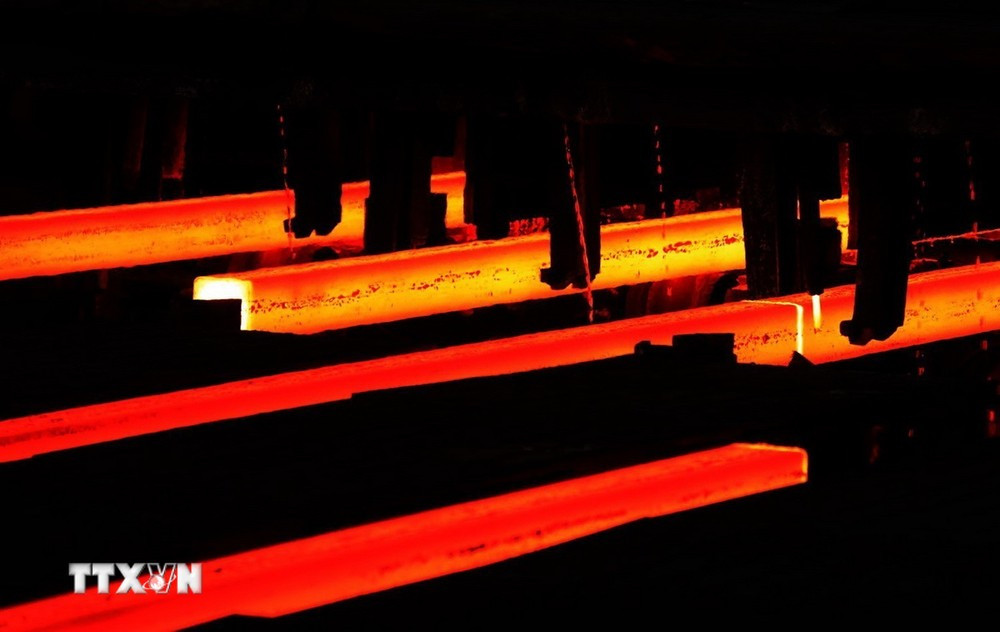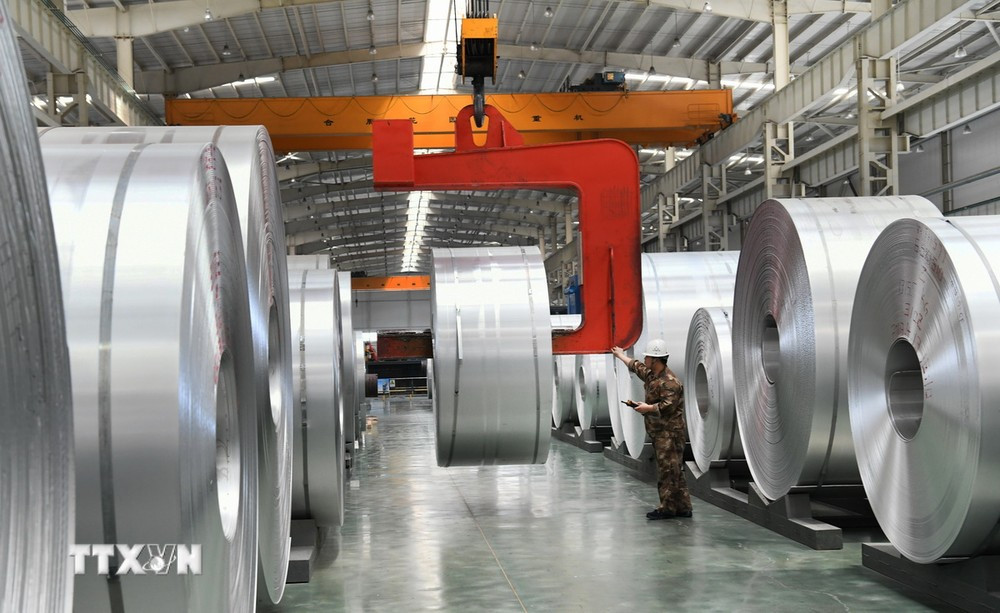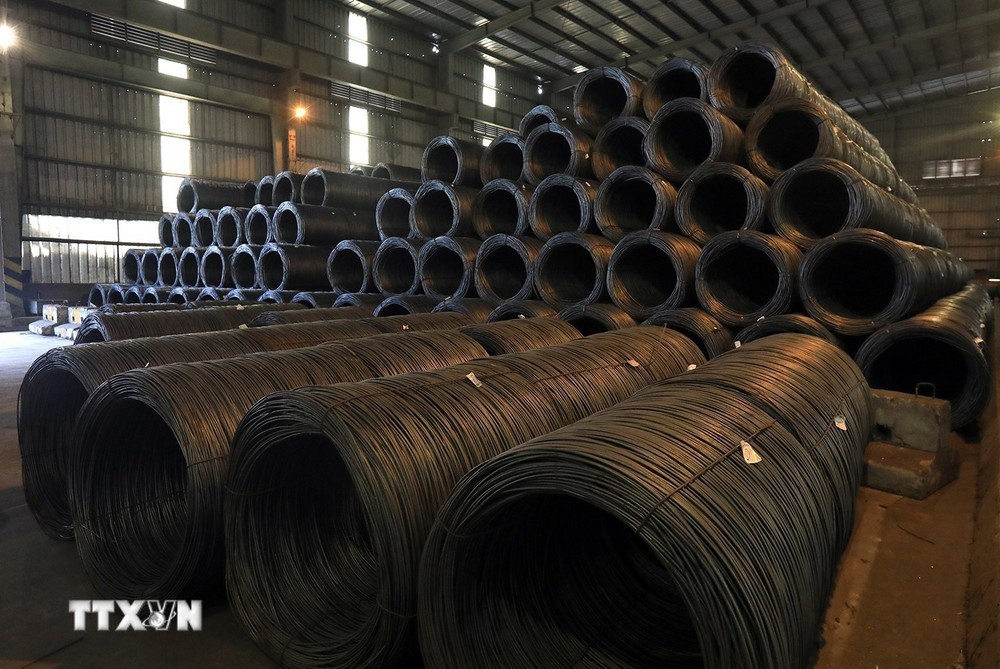It is estimated that in the first quarter of 2024, the import volume of hot-rolled steel will reach 3 million tons, 1.5 times higher than the domestic production volume, with imports from China and India increasing dramatically, accounting for 75%.

Recently, hot-rolled steel (HRC) manufacturers such as Formosa and Hoa Phat have filed a request to initiate an anti-dumping investigation on this product imported from China and India due to threats to domestic production.
So how is massive steel imports affecting domestic production and should Vietnam investigate and eventually impose taxes on this product?
According to data from the General Department of Customs, in 2023, the import volume of hot-rolled steel coil was 143% of the domestic production volume.
It is estimated that in the first quarter of 2024, the import volume of HRC will reach 3 million tons, 1.5 times higher than the domestic production volume, with imports from China and India increasing dramatically, accounting for 75%.

This is the first time that Vietnam has imported more HRC in a year than domestic production. According to the Vietnam Steel Association's report in 2023, the production of two domestic hot-rolled steel manufacturers, Formosa and Hoa Phat, has decreased, reaching only 73% of the design capacity compared to 86% in 2021 due to unfair competition with imported goods sold below cost.
In terms of price, import prices have now fallen sharply from $613 in early 2023 to $541 in Q4/2023.
A representative of a domestic enterprise shared: "This is alarming. Some countries such as Thailand or Indonesia have lower production than Vietnam, and import volume is much less than domestic production, and have also used trade defense measures to protect upstream steel production."
Strong import growth and low selling prices have caused the domestic sales market share of the two domestic HRC manufacturers to drop sharply from 45% in 2021 to 30% in 2023.
In contrast, the market share of imports from China and India increased from 32% to nearly 46% in 2023. Import momentum is expected to continue to increase strongly in 2024 amid China's steel oversupply crisis.
With an unprecedented import volume in history, domestic production has been severely damaged, affecting the steel industry's efforts to be self-sufficient in producing high-quality steel that it has built over the past decades.
According to Mr. Phan Dang Tuat, Chairman of the Vietnam Association of Supporting Industries, in the past, Vietnam could not produce hot-rolled steel because the investment capital was too large and the technology required was very high, but since Formosa Ha Tinh and Hoa Phat invested billions of USD, they have been able to do this.
“When we were not able to produce hot-rolled steel, it was natural to have to import it, but now we have been able to produce it and the products are highly competitive. However, this product line is still flooding in in large quantities, especially recently there have been signs of selling below cost, so we need to consider opening an anti-dumping investigation,” said Mr. Phan Dang Tuat.
The Vietnamese Government's viewpoint is always to encourage investment in steel production from upstream, prioritizing domestic production because steel is considered the foundation for manufacturing industrial products, helping domestic manufacturing industries to be self-sufficient in raw materials.
Following this policy, the Vietnamese steel industry has risen from being nowhere on the world map to number 1 in Southeast Asia and top 13 in the world, producing a variety of high-quality steel products, serving to make car tires, screws, fabricated steel, elevator cables, container shells, steel for rails, etc.

According to steel industry expert Nguyen Van Sua, protecting domestic upstream production also means protecting jobs and creating a sustainable source of budget revenue for the state.
Hoa Phat alone creates jobs for 30,000 workers, contributing to the state budget from 10,000 to 20,000 billion VND/year, equivalent to the contribution of an average province.
Initiating an anti-dumping investigation is a common practice that countries apply to protect domestic production when there are signs of abnormalities in the volume and price of imported goods.
According to statistics from the Vietnam Federation of Industry and Commerce (VCCI), from 2010 to present, there have been 27 cases in the world requesting investigation to apply anti-dumping measures on hot-rolled steel initiated, with a 100% success rate, thereby proving the importance of this trade defense measure for the hot-rolled steel manufacturing industry of many countries around the world.
Almost all countries with domestic hot-rolled steel production industries have initiated anti-dumping investigations on this product, for example the United States, Thailand, Brazil, EU, Indonesia, India, Canada, Australia, etc. China and India are often on the list of countries accused of dumping hot-rolled steel products.
Hoa Phat Group said that HRC hot-rolled steel accounts for a very large percentage in the cost structure of downstream products, specifically cold-rolled steel at 96% and galvanized steel of all kinds at more than 80%.
According to expert Nguyen Van Sua, we need to use and protect the hot-rolled steel production originating from Vietnam to produce downstream products. On the one hand, it is to protect domestic production, on the other hand, it is to avoid the risk of facing anti-avoidance lawsuits when exporting goods to the US and EU countries.
In practice, anti-dumping tax evasion lawsuits investigated by the US in recent years have all shown that galvanized steel products, cold-rolled steel, and steel pipes using dumped materials originated from China and Taiwan (China).
Besides, using a large proportion of hot-rolled steel from domestic sources in the long term will be a positive factor for export activities, increasing competitiveness and transparency of goods origin, rather than a negative factor, Mr. Sua commented.
Mr. Phan Dang Tuat also said that it is necessary to create favorable conditions for domestic enterprises, especially the steel industry, which is the upstream of the industrial sector, and needs to be protected. "I agree with the opening of a defense investigation on this item because there is currently no tariff barrier on hot-rolled steel, and anti-dumping defense measures can be investigated," Mr. Phan Dang Tuat suggested.
In the long term, Mr. Phan Dang Tuat said the Government must have solutions to support domestic enterprises to develop. Currently, domestic enterprises such as Hoa Phat have invested in making steel for cable-stayed bridges and railways and they are ready to make steel for mechanical engineering and equipment.
“Why doesn’t the government have a solution to support domestic enterprises in upstream investment and production by imposing tariff barriers and technical barriers? That is for the long term, but in the short term, anti-dumping investigations are necessary. The investigation is not only to protect domestic production but also to prevent import markets such as the US and Europe from considering Vietnam as a “transit” market for Chinese goods entering the US to avoid,” said Mr. Phan Dang Tuat.
From the perspective of the industry association, Mr. Nghiem Xuan Da, Chairman of the Vietnam Steel Association, said that the association's viewpoint is to support domestic steel production and encourage investment in upstream enterprises, because that is the foundation for manufacturing industries, the investment volume is very large and employs tens of thousands of workers.
“With signs of dumped imports, an investigation should first be opened and carried out in the correct order,” said Mr. Da. Currently, the Ministry of Industry and Trade has received a request from domestic hot-rolled steel coil manufacturers to apply anti-dumping measures on imported products (mainly from China and India).
A representative of the Department of Trade Defense (Ministry of Industry and Trade) said that the unit is evaluating the dossiers of the enterprises. Based on the evaluation, if it is valid, it will recommend that the Ministry of Industry and Trade consider initiating or not initiating an anti-dumping investigation of hot-rolled steel.
After initiating an investigation, the investigation period will last 12 months, and in some cases may last longer. During that time, the investigating agency will issue a notice and request the relevant parties to provide all evidence for a comprehensive, objective and fair review. The entire process will be public and transparent - said a representative of the Trade Defense Department.
TB (according to VNA)